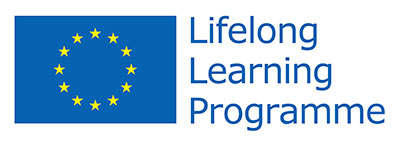EQVET-US

|
European quality assurance in VET towards new eco skills and environmentally sustainable economyBackground |
Background
VET excellence at system levels implies a strategy of continued skills development and, as of today, most EU national education and training systems have quality standards for VET providers which are mainly used as a condition for funding, accreditation and/or are required as part of legislation. The last EQAVET survey and external evaluation show that some features of the framework are well embedded in the quality assurance cultures of the Member States. However, significant room for improvement remains for reaching a shared understanding and ensuring the sustainability of VET organisations. In order to establish and implement quality systems in the area of sustainable development, VET providers need to have an updated and innovative framework and practice set and, at the same time, determine the return on investment of VET programmes.
Aims and Target Groups
EQVET-US aims at developing an innovative framework and tools to equip VET providers and their staff in order to boost the implementation and use of the EQAVET principles. The project will give special focus on Eco skills and environmentally sustainable economy aspects and provide a peer learning evaluation methodology, based on a four-level analysis of training effectiveness: reaction, learning, behaviours and results.
Partners and Outcomes
A consortium of seven partners from Romania, Portugal, Germany, France, Bulgaria and Austria with specific expertise on quality assurance and training systems will provide the following outcomes:
- EQVET-US Framework, practice set and guidelines on sustainable development
- EQVET-US Methodology for scalable Eco skills and sustainable training evaluation
- EQVET-US Recommendation guide to boost the transferability
| EU-Program: | Erasmus+, KA2, Strategic Partnerships for vocational education and training |
| Coordination: | Universitatea Petru Maior din Targu Mures (Romania) |
| Contact: | Karin Kronika |
| Duration: | September 2014 – October 2016 |
| Website: | eqvet-us.upm.ro |

|
This project has been funded with support from the European Commission. This publication reflects the views only of the author, and the Commission cannot be held responsible for any use which may be made of the information contained therein. |